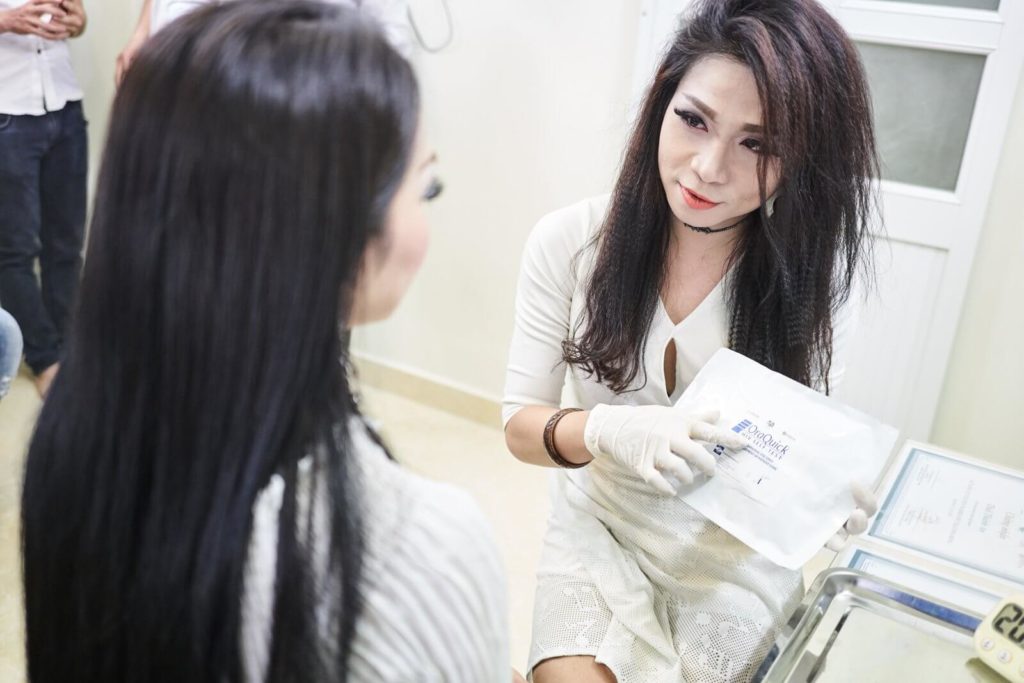Transgender Women Are More Prone To HIV Risk
Nikki Attkisson | Last Updated : August 12, 2021The Centers for Disease Control And Prevention has acquired evidence suggesting that transgender women are at a higher risk of contracting the HIV virus. It is a virus attacking the immune system and brings with it the risk of other infections. Without proper treatment, it can develop into AIDS.
There are several options available that can effectively reduce the risk of catching the virus, but health inequities often don’t allow them to receive the treatment and help they need. There are a number of factors that hinder this, including economic vulnerability, discrimination, lack of social support among others.
Transgender Women Are More Prone To HIV Risk
The Centers for Disease Control and Prevention says that in 2018, around 1 million Americans came out as transgender and 2% of HIV cases were among them. According to the Human Rights Campaign around 21.6% of transgender women in the US are suffering from HIV. A CDC report says that many ethical and racial disparities are subjected to transgender women with HIV. In the report of their interview, around 42% of transgender women had HIV.

Data of ethnicity and race of these transgender women shows 65% of Alaska or American Indians, 62% of them are African Americans/ Black people, 38% were Latina and Hispanic people, 20% Asian American, 17% Native Hawaiian, and 17% were white people. Evidence shows that 93% of HIV cases in transgender people in 2019 were among transgender women. Among them, those aged between 20-24 years of age were 24% and 25-29 years old constituted 23%.
One of the factors putting transgender women at risk is stigma. Compared to their cisgender peers, transgender women are subjected to much more stigma and bias. There are not many transgender-inclusive health insurance policies that hinder their medical care. They are highly stigmatized which makes them prone to discrimination at various levels.
A study carried out in 2019 shows that transgender women belonging to ethnic minorities were more likely to be discriminated against racially compared with white transgender women. Professionals who are discriminatory in the healthcare department prevent these women from getting medical care. This leads to them consulting unlicensed professionals who probably use the same needles in a number of patients.
Also Read: BioFit reviews
Transgender women are economically vulnerable. Compared to the population as a whole, the National LGBTQ Task Force reports a double rate of unemployment among transgender workers. This makes them prone to unemployment. When transgender women suffer lack of medical care, housing, and poverty, they start providing sex work to feed themselves, which increases their HIV risk.
Transgender women are prevented from the traditional labor market, which as noted above, makes them practice sex work. They may also indulge in behavior like unprotected anal sex, which exposes them to the risk of HIV. According to a 2015 study, transgender women belonging to ethnic minorities are much more likely to practice unprotected anal sex compared with white transgender women. Studies claim that HIV infections are up to nine times higher in sex workers from the transgender communities than cisgender sex workers. There are also higher risks of many other sexually transmitted diseases like gonorrhea and chlamydia in transgender women, according to a 2021 study.
There is evidence that transgender individuals consume substances and alcohol in more numbers. A study carried out in 2015 showed much high substance use in transgender women. This also includes drug use by injections, which increases the risk of HIV. The prolonged presence of discriminatory factors, bullying among many others force transgender women in consuming drugs.
All these factors lead up to a decrease in their self-esteem and an increase in depression. They feel disempowered to demand using condoms. To avoid rejection, they may participate in unprotected sexual practices which increases their HIV risk. What increases the risk furthermore is surgeries like vaginoplasty as the tissues become more prone to infection.
With over 15 years as a practicing journalist, Nikki Attkisson found herself at Powdersville Post now after working at several other publications. She is an award-winning journalist with an entrepreneurial spirit and worked as a journalist covering technology, innovation, environmental issues, politics, health etc. Nikki Attkisson has also worked on product development, content strategy, and editorial management for numerous media companies. She began her career at local news stations and worked as a reporter in national newspapers.
